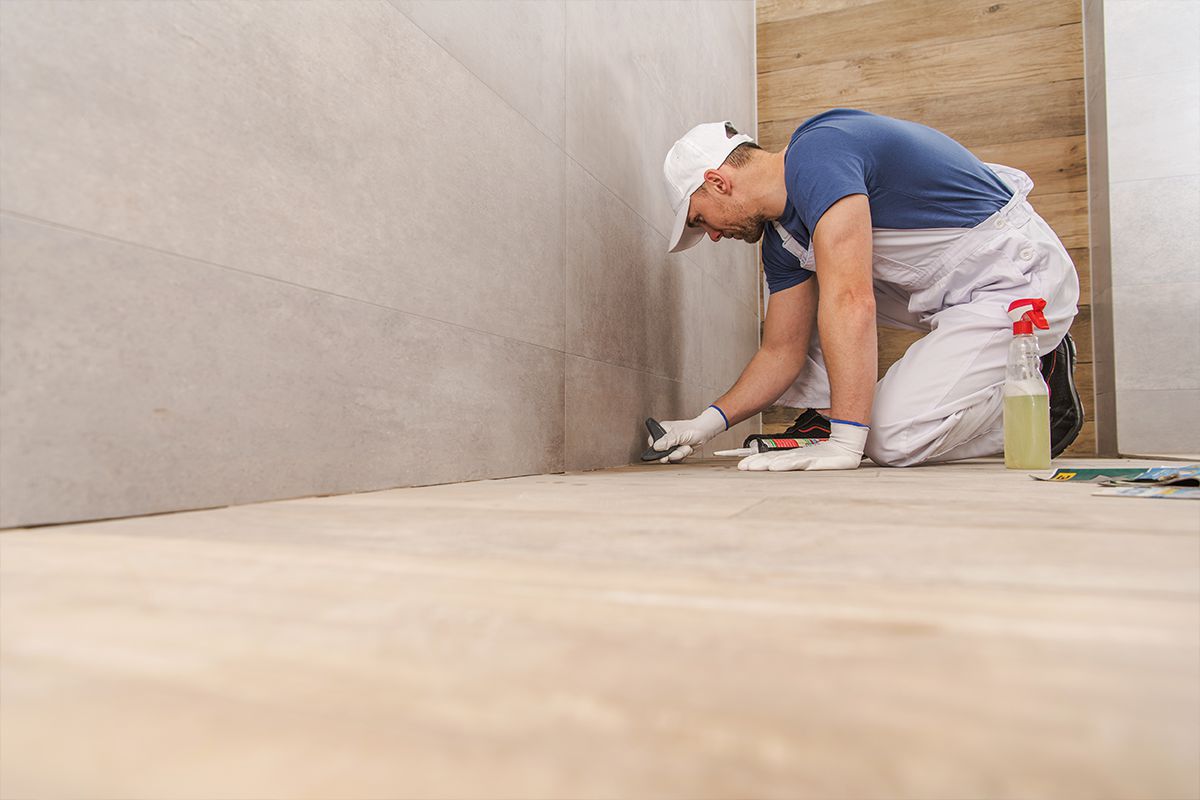
01 Jun What is the difference between waterproof and water-resistant flooring?
Waterproof vs Water Resistant Flooring What You Need to Know
Understanding Floor Protection Essentials
Water damage presents one of the most significant threats to flooring integrity. When water seeps into flooring, it can severely compromise structural integrity, leading to costly repairs and replacements. To prevent or reduce water damage, property owners have two main options: waterproof flooring and water-resistant flooring.
Both types aim to protect against moisture damage, but their effectiveness and longevity differ significantly. Let’s explore these differences to help you make an informed decision for your space.
Key Differences Between Waterproof and Water Resistant Flooring
What is the difference between waterproof flooring and water-resistant flooring and why is this difference important? Both of these types of flooring have the same purpose: to prevent or reduce water collected on the surface of floors.
Floors that easily absorb water are prone to damage over time. When water seeps into flooring, the structural integrity of the flooring is affected.
There are two types of flooring that can be used to maintain the lifespan and durability of your floors: waterproof flooring and water-resistant flooring.
Making the right choice between waterproof and water resistant flooring can significantly impact your property’s longevity and maintenance costs. While both options offer protection against moisture, their capabilities differ substantially, and choosing the wrong option could lead to costly repairs down the line.
True Waterproof Flooring Solutions
As the name suggests, waterproof floors provide complete protection against water absorption. Rhino Linings’ flooring solutions create a seamless, airtight, and watertight bond that conforms perfectly to the substrate. These advanced coatings offer:
- Permanent moisture barrier protection
- Industrial-grade durability
- Chemical and impact resistance
- Seamless application
- Long-term cost savings
- Enhanced property value
Waterproof flooring proves ideal for:
- Commercial kitchens
- Bathrooms
- Laundry rooms
- Mudrooms
- Balconies
- Industrial facilities
- Marine vessels
Understanding Water Resistant Flooring
Water resistant floors feature a surface coating that provides temporary protection against moisture. While these surfaces can handle immediate spills when promptly cleaned, they have significant limitations:
- Surface-level protection only
- Time-limited water repellency
- Requires immediate spill cleanup
- Gradual moisture absorption
- Potential for long-term damage
- Limited lifespan in high-moisture areas
Water resistant flooring works best in:
- Bedrooms
- Living areas
- Office spaces
- Low-moisture environments
- Areas with minimal spill risk
Making the Right Choice for Your Floor Space
Long-Term Protection Considerations
When choosing between waterproof and water resistant flooring, consider that damage often occurs gradually. Small spills and minor moisture exposure accumulate over time, weakening floors and potentially causing extensive damage to the internal space. As water accumulation is often invisible until significant damage occurs, prevention through proper protection becomes crucial.
Signs of moisture damage may include:
- Warping or buckling
- Lifted laminate planks
- Discoloration
- Mold growth
- Musty odors
- Structural weakening
Investment Value Analysis
While waterproof flooring may require a higher initial investment, it typically proves more cost-effective in the long run. Consider these factors:
Waterproof Flooring Benefits:
- Extended lifespan
- Minimal maintenance requirements
- Complete moisture protection
- Reduced repair needs
- Enhanced property value
- Peace of mind
Water Resistant Limitations:
- Regular maintenance needs
- Limited protection
- Potential replacement costs
- Ongoing monitoring required
- Risk of water damage
- Shorter lifespan
Which Flooring Protection do we recommend?
Ultimately, waterproofing is the best option if you are looking for floors that will not have any risk of leakage. You don’t need a floor or other major spill to risk water damage to flooring.
Small spills build up over time, weakening floors and causing damage to the entire internal space. As it is difficult to see water accumulation, this type of damage is only noticed when severe effects begin to show, such as rot, bumps in flooring, lifted laminate planks or other visible signs.
It is far more cost-effective to invest in floors that you know will withstand any amount of moisture and liquid.
For the last four decades, Rhino Linings has been the preferred supplier of premium spray-applied coatings for floors. Invest in waterproof flooring and you will always have peace of mind knowing that your floors are safe against potential moisture damage.
Frequently Asked Questions on Waterproof vs Water Resistant Flooring
Professional waterproof flooring installations can last decades with proper maintenance, while water resistant options typically require replacement every 5-10 years, especially in moisture-prone areas.
Yes, Rhino Linings can upgrade existing water resistant flooring with professional waterproof coatings. Contact our experts for an assessment.
Waterproof flooring requires minimal maintenance beyond regular cleaning, while water resistant flooring needs careful monitoring and immediate attention to spills to prevent damage.
Commercial spaces generally benefit most from waterproof flooring due to higher traffic, increased risk of spills, and the need for long-term durability.
Most Rhino Linings waterproof floor coatings allow for light foot traffic within hours and full use within 24 hours of application.
Professional Protection for Your Investment
Don’t wait for water damage to compromise your flooring. Choose the proven protection of professional waterproof flooring from Rhino Linings. Contact us today to discuss your needs or find your nearest Rhino Linings dealer.

No Comments